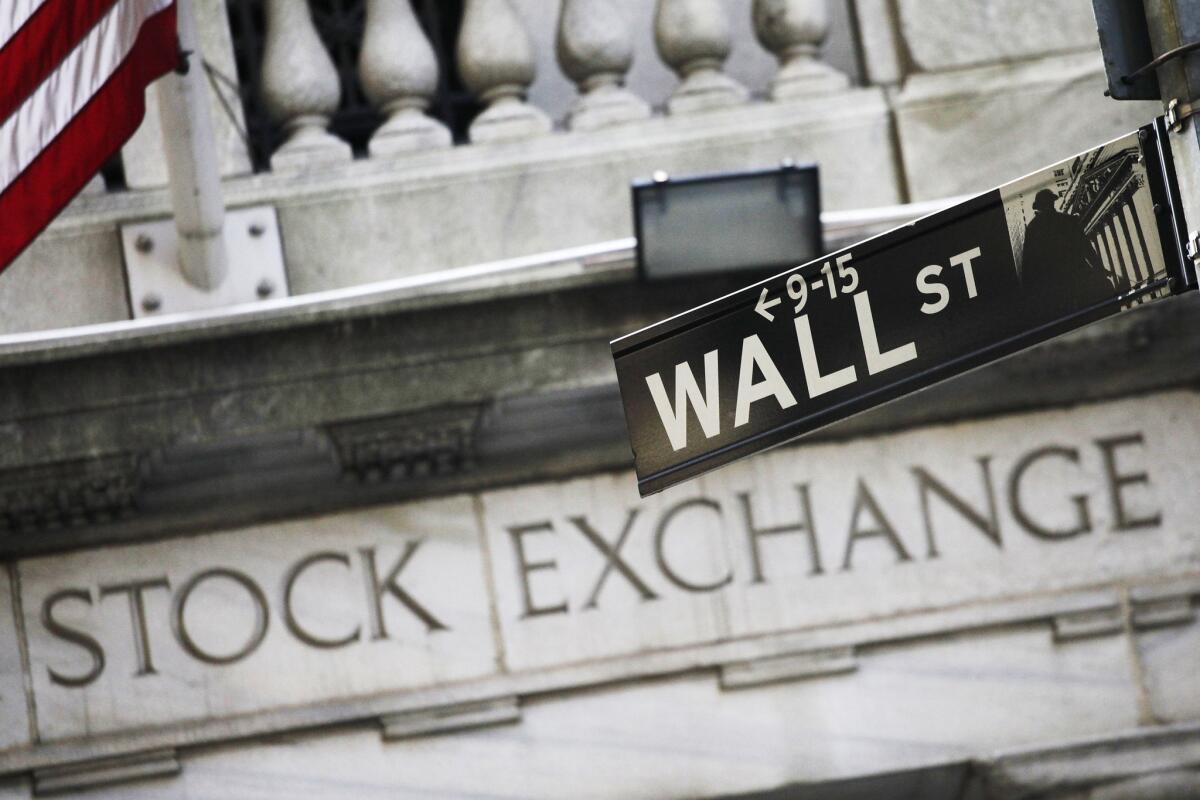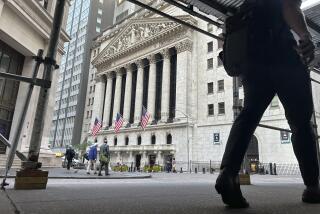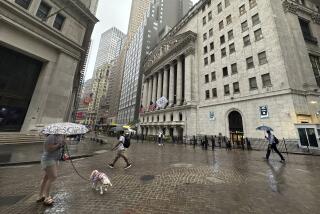Stocks bounce up but still end the week with a loss

Stocks on Wall Street managed to end a bumpy day broadly higher Friday but still finished with their worst week in nearly three months.
The Standard & Poorâs 500 index rose 1.3% the day after dropping nearly 6% in its biggest rout since mid-March. It lost 4.8% for the week, snapping its three-week winning streak. Small-company stocks and bond yields rose, meaning investors were a bit more willing to take on risk again the day after the sell-off.
The volatility this week interrupted what had been a dramatic rally for the market as investors re-evaluated their expectations for future economic growth, which many skeptics have been saying were overly optimistic.
After surging Monday, stocks sold off for three straight days as a rise in COVID-19 cases in the U.S. and a discouraging economic outlook from the Federal Reserve dashed investorsâ optimism that the economy will recover relatively quickly as states lift stay-at-home orders and businesses reopen.
âYesterday was the market taking a needed breath and saying, âOK, this is probably going to take more time than we were expecting,ââ said Willie Delwiche, investment strategist at Baird. âToday, itâs, âMaybe we overreacted yesterday.ââ
The comeback rally lost some of its early strength as Friday went on. The S&P 500 shed more than half of its early gains, ending the day up 39.21 points at 3,041.31.
The Dow Jones industrial average rose 477.37 points, or 1.9%, to 25,605.54. It had been up more than 800 points in the early going.
The Nasdaq, which climbed above 10,000 points for the first time Wednesday, gained 96.08 points, or 1%, to 9,588.81. The Russell 2000 index of smaller companies fared better than the rest of the market, climbing 31.46 points, or 2.3%, to 1,387.68. European markets closed mostly higher. Asian markets ended broadly lower.
Investors have been balancing optimism about the reopening of the economy against the possibility that the relaxing of restrictions will lead to a surge in new coronavirus infections and deaths. Cases are climbing in nearly half the states, according to an Associated Press analysis, a trend that could intensify as people return to work and venture out during the summer.
Despite the uncertainty, stocks have mounted a historic comeback in the last couple months. The S&P 500 rallied 44.5% between late March and Monday, erasing most of its losses tied to the pandemic. Itâs unclear whether Thursdayâs sell-off reflected a fundamental reassessment of the economic outlook or a one-off drop as traders cashed in on recent gains.
âWe will continue to see volatility across the markets, as there is plenty of uncertainty on what the reopening of the U.S. economy looks like,â said Julie Fox, northeast private wealth market head at UBS Financial Services.
In a news conference this week, Federal Reserve Board Chairman Jerome H. Powell put a damper on hopes for a swift economic rebound from the pandemic. He noted that surprisingly strong May hiring data, while encouraging, was hardly enough to ensure that the job market or the economy is back on track.
âThis is a battle of optimism and realism thatâs been playing out over the last three months,â said Adam Taback, chief investment officer for Wells Fargo Private Wealth Management. âOptimism was winning over realism with a look toward 2021. What Jerome Powell exposed is 2021 is not enough time. Itâs likely 2022 or even 2023 before we will see ourselves get back to normal.â
Taback said the job market remains the most important gauge of the economyâs recovery, which is why heâs keeping an eye on data for signs that people who were laid off or furloughed are getting rehired as businesses reopen.
âThe main thing to watch is how fast those jobs come back, because theyâll be directly tied to how much consumers are spending,â he said.
Technology, financial and industrial stocks were among the big gainers Friday. Utilities stocks posted a small loss. Companies that were among the biggest losers Thursday were big gainers Friday, including airlines and cruise lines.
Bond yields rose. The yield on the 10-year Treasury increased to 0.69% from 0.65%.
Benchmark U.S. crude oil for July delivery fell 8 cents to $36.26 a barrel. Brent crude oil for August delivery rose 18 cents to $38.73 a barrel.
More to Read
Inside the business of entertainment
The Wide Shot brings you news, analysis and insights on everything from streaming wars to production â and what it all means for the future.
You may occasionally receive promotional content from the Los Angeles Times.










